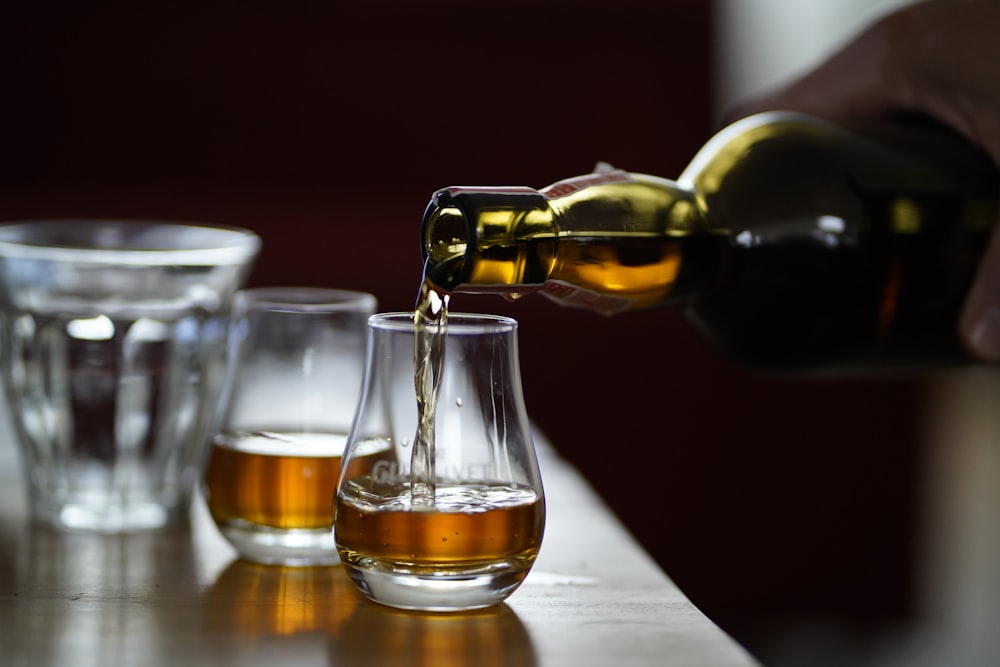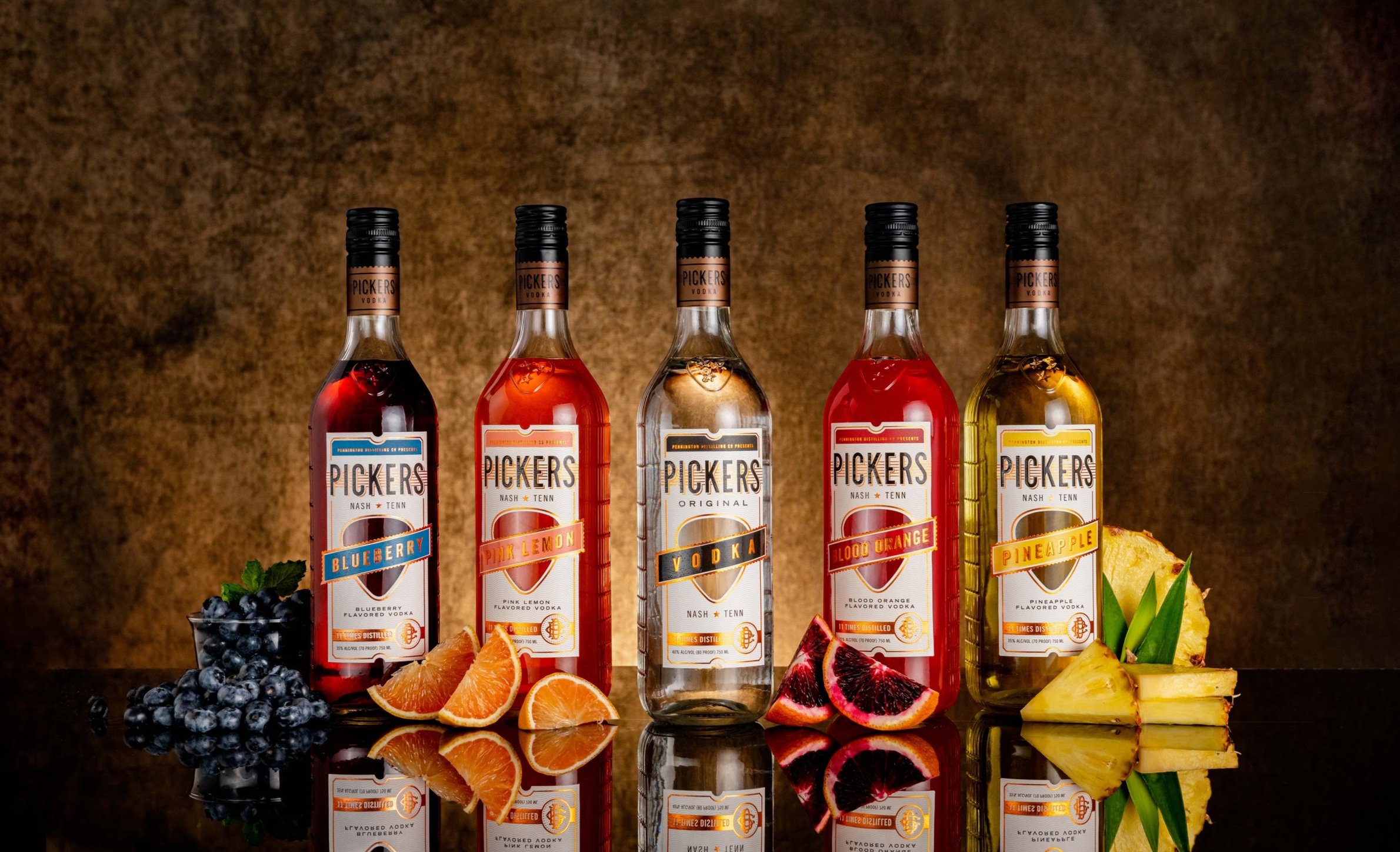Whiskey

History: Whiskey's history dates back to 1000–1200 AD, when visiting monks brought distillation from the European continent to Scotland and Ireland. Since there were no vines or grapes in Scotland and Ireland, they turned to fermenting grain mash instead.
General Information: Whiskey is a distilled alcoholic beverage made from fermented grains and aged in wooden barrels. It comes in various types and flavors, enjoyed straight or in cocktails. The spelling "whiskey" or "whisky" depends on the region of origin.
Brandy
:max_bytes(150000):strip_icc()/Cognac-vs-Brandy-FT-BLOG0823-df7025f0342c4692b989fecd53d43756.jpg)
History: Since the Middle Ages, it has been distilled in France, initially being used mostly for medical purposes. Brandy is derived from the Dutch word brandewijn, which means "burnt wine," and is reduced to Brandywine.
General Information: Brandy is a distilled spirit made from fermented fruit juices, typically grapes, but it can also be produced from other fruits like apples, pears, or cherries. The fruit juice is fermented and then distilled, resulting in a strong, flavorful spirit. Brandy is often aged in oak barrels, which gives it a distinctive color and taste.
Vodka

History: Russia and Poland both assert that they invented vodka first. In Russia, vodka was first recorded to have been produced at the end of the ninth century. However, the earliest distillery known to history was recorded almost 200 years later in the Russian town of Khylnovsk in 1174. Vodka is said to have been distilled in Poland in the eighth century.
General Information: Vodka is a popular distilled spirit known for its clear and neutral taste. It is typically made from fermented grains like wheat or corn, but it can also be produced from potatoes or other materials. Vodka is prized for its versatility and high alcohol content, making it a fundamental component in countless cocktails and mixed drinks.
Rum

History: Rum originated in the Caribbean in the 17th century, evolving from the byproduct of sugar production. It played a role in the slave trade, was associated with pirates, and was issued as a ration to British sailors. Over time, different styles of rum emerged, and it became a key ingredient in many classic cocktails.
General Information: Rum is a distilled alcoholic beverage with a diverse range of flavors and styles, originating in the Caribbean and Latin America, primarily made from sugarcane byproducts. It's a key ingredient in classic cocktails like the Mojito and Daiquiri, and can be enjoyed neat or on the rocks. Rum comes in various types, including light, dark, spiced, and aged varieties.
Gin

History: Gin originated in the Netherlands as a medicinal drink called "jenever." It gained popularity in England and led to the 18th-century Gin Craze. The Gin Act of 1751 brought regulation. London dry gin emerged in the 19th century. Today, gin enjoys a revival with craft distilleries and diverse botanicals.
General Information: Gin is a distilled spirit that originated in the Netherlands in the 17th century and later gained popularity in England. It's primarily flavored with juniper berries and botanicals, resulting in various aromatic profiles.
Tequila

History: Tequila originated in Mexico, with indigenous people fermenting agave-based drinks. The Spanish introduced distillation, and the blue agave plant became the key ingredient. The town of Tequila in Jalisco, Mexico, is at the heart of tequila production. Strict regulations and the Designation of Origin (DO) for Tequila were established in the 20th century to safeguard its quality and authenticity.
General Information: Tequila is a Mexican distilled spirit made from blue agave plants. It's known for its distinctive and often earthy flavor, with variations like Blanco, Reposado, and Añejo aged to different degrees. Tequila is used in cocktails like the Margarita and enjoyed as a shot with salt and lime.